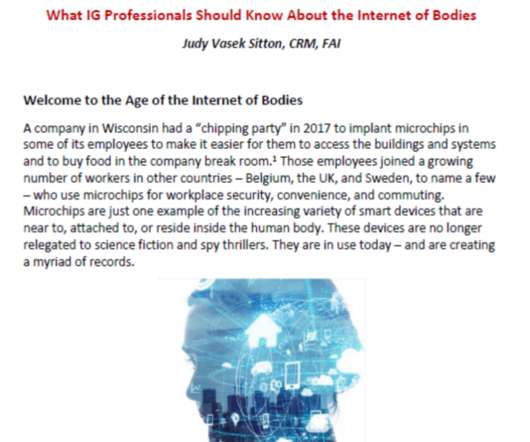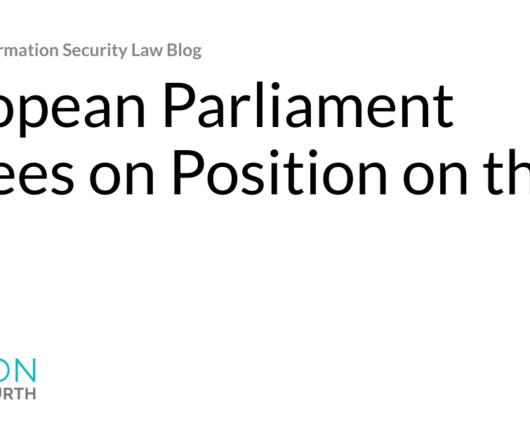What IG Professionals Should Know About the Internet of Bodies
ARMA International
FEBRUARY 21, 2020
Those employees joined a growing number of workers in other countries – Belgium, the UK, and Sweden, to name a few – who use microchips for workplace security, convenience, and commuting. Workplace safety, health monitoring, and convenience top the list of benefits. Each type of IoB device brings with it benefits and risks.













Let's personalize your content